A new chapter for Horner at Lampre-Merida
Vuelta winner on UCI points, rider 15, blood values and 2014 season
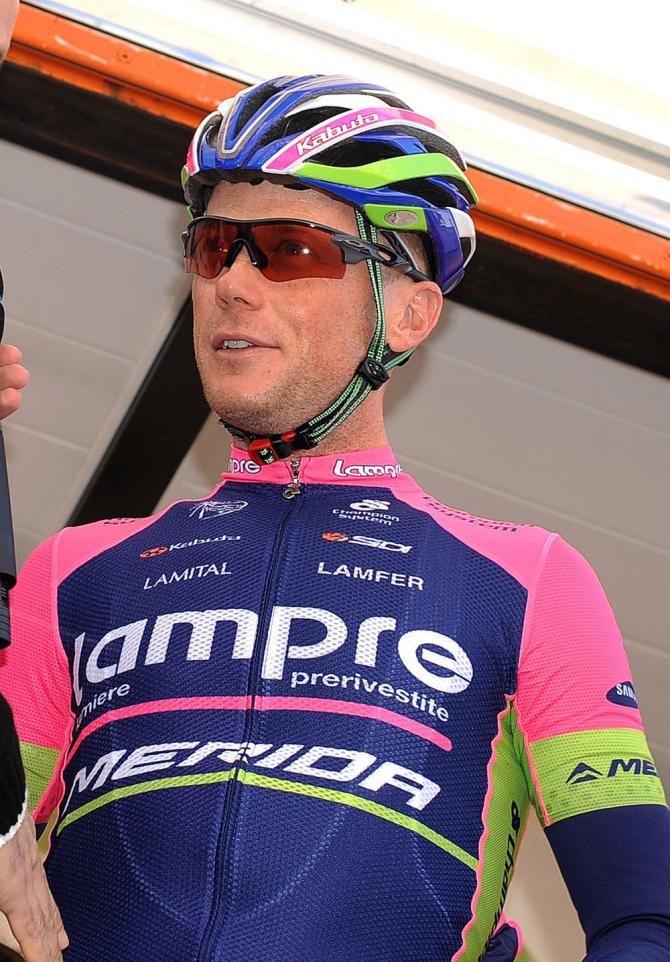
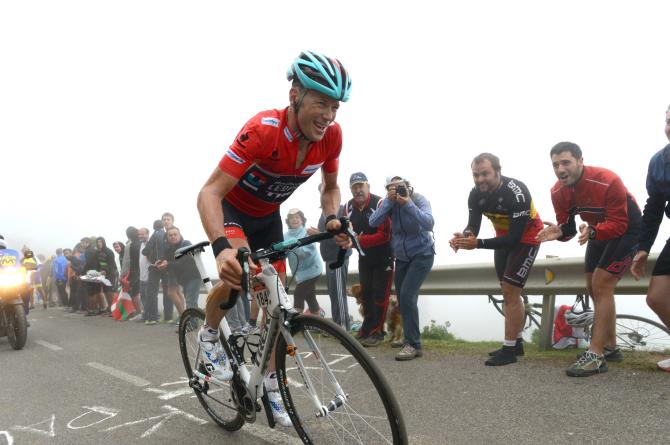
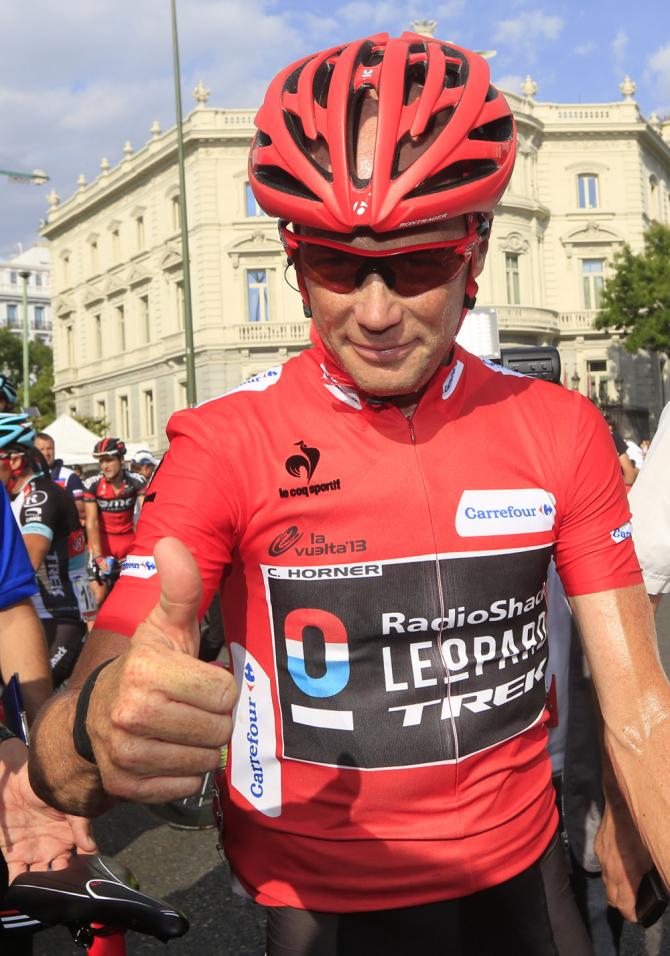
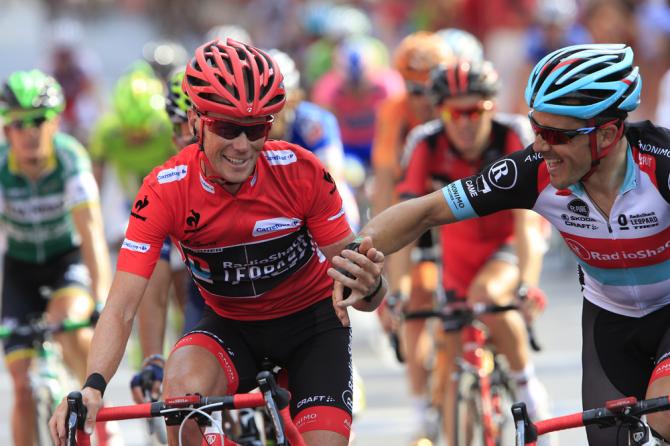
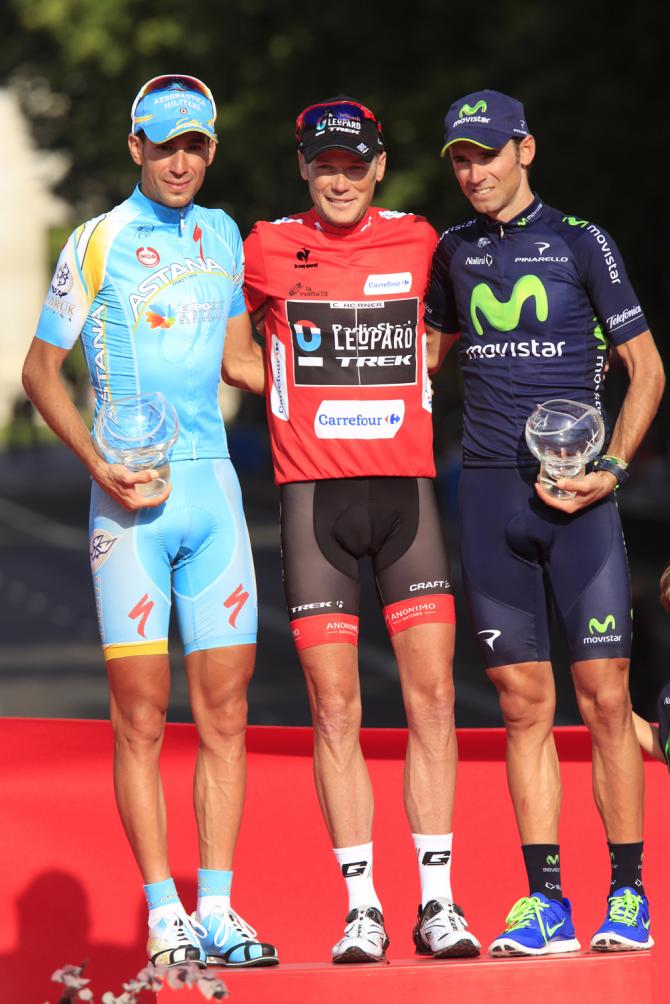
Last year Chris Horner made history by becoming the oldest Grand Tour winner of all time, sealing the Vuelta a Espana after withstanding all Vincenzo Nibali and three weeks of racing in Spain could throw at him.
If you had put a dollar on Horner winning a 2013 Grand Tour ten years ago you would have received long - very long - odds but there he was, pushing up the Angliru and riding into the history books.
With a Grand Tour in the bag one would have thought that teams would have been falling over themselves to sign him. Here was a Grand Tour winner – there aren't too many of them around – with no contract for the following year and even if his age was a worry he still carried considerable experience.
Yet the cons seemed to outweigh the pros. He wanted too much money – reportedly a million dollars; most teams had locked their budgets; American cycling was still reeling from the USADA report; and perhaps most importantly, none of the WorldTour teams needed his points.
This wasn't like Levi Leipheimer signing for Omega, when the Belgian team were desperately looking for UCI points. All 18 WorldTeams were safe, had their leaders signed and sealed, and didn't need a rider who may or may not have just produced a fluke Grand Tour result. With budgets tallied against the risks, here was a rider who looked like a major gamble to too many teams.
At the Mallorca Challenge, Horner, in a neatly-fitted Lampre tracksuit, sits down to discuss the last few months, a period in time in which he was linked to a cluster of teams but who seemed destined to fade away.
"I knew that something was going to come through"
The latest race content, interviews, features, reviews and expert buying guides, direct to your inbox!
"At the Vuelta I thought I'd be staying with Trek but that didn't work out and next thing I knew it was January," Horner told Cyclingnews.
After the Vuelta the contract negotiations began to worsen. Mike Rutherford, Horner's agent for over a decade, shopped around for a new offer. However, he had banked too much on Trek and when the manufacturer served up a fraction of Horner's value in a take-it-or-leave-it offer, it was almost too late.
Rutherford pulled out his book of contacts once more but the problem was all about money. Marc Sergeant, who Horner had ridden for years before, had already signed Maxime Monfort, and had only a tiny budget left to play with and a desire to look for young talent. Garmin weren't interested and neither was a new Pro Continental team that were looking for bargains. The Alonso team looked promising but when the squad was put on the back burners for another year Rutherford was again caught short.
The next play came from Horner. He dramatically cut ties, dropping Rutherford and picking the recently retired Baden Cooke to represent him. It was left field, it was risky, but it worked. Cooke had only just hung up his wheels after spending over a decade at the heart of the European peloton, while Rutherford was more accustomed to dealing with teams from his base in the US.
"For me when Baden talked with Brent Copeland, that's when it started to come together. When I talked with Brent at Lampre I knew there was a good chance of coming. Of course with the team never having an American before you don't really predict it. But when I spoke with Brent we chatted and I thought there was a good chance. A week later it started to fall into place. From there I got a full ten days of Rosetta Stone in."
"I knew I'd be racing," Horner said when asked if retirement ever entered his mind.
"I just didn't know if it was going to be with the WorldTour or Pro Conti. I knew that something was going to come through. Once it got into January it was a little bleaker but it didn't take long in January before I was talking with Brent.
"This is the first year in my career when the UCI points really had no value. In the years before you had over 20 teams fighting for 18 spots. That's what changed a lot. I was then in talks with Trek for a long time, longer than I should have been, and maybe I wasted time there. You throw in that the Vuelta comes late, that I talked with Trek for three weeks, and I thought it was a given more or less. Of course now we know it wasn't but if we throw in the age and the value it all becomes complicated. I'm turning 43 this year, too."
Horner also dismisses the theory that winning the Vuelta harmed his contractual position. His Grand Tour win had raised his market value but at exactly the wrong time and coupled with the questions over age and the doping questions that frankly every Grand Tour winner now faces – not just Horner - perhaps it would have been a ‘safer' position to finish fifth instead of first. It would have meant a lower salary, less scrutiny but given a number of teams proof that a solid super-domestique could still do a job.
"First off I'd never take that scenario," Horner said.
"You dream your whole life hoping to win a Grand Tour. It's something I'll have on my resume for my whole life. That's what you shoot for as a kid. Maybe it would have made it easier to find a team because I wouldn't have asked for as much at that time. But most of the big riders were already signed so the idea of signing so late and for big dollars is difficult. And even if you have 18 WorldTour teams they don't have the same budgets they may have had five years ago.
"Baden made it happen. It's that simple. I'd been with Rutherford a long time and I love the guy but once it got to January there's not much left. There's only two people working for me and that's me and my agent. I can't fire me."
I'm not rider 15
Horner also faced questions, albeit only from Cyclingnews, as to whether he was a redacted name in USADA's investigation into Lance Armstrong and the US Postal team. The redacted rider – number 15 – appeared in the affidavit of Levi Leipheimer. Cyclingnews spoke to a source who didn't wish to be named but who had detailed knowledge of the investigation and who had claimed Horner was rider 15. Immediately after the Vuelta, Horner failed to answer the question as to whether he was the rider in question but later came out and told BikeRadar that he wasn't the man in question and that he didn't know who it may have been.
USADA remained as tight-lipped as ever with ongoing investigations but with a source claiming that Horner was number 15 the question was certainly a legitimate one. It was simply timing that the source chose to speak to Cyclingnews after the Vuelta and not when the report came out.
"What I said [when you called] was that I didn't know what you were talking about," Horner said in relation to the conversation he had with Cyclingnews in September of last year.
So was our source lying? "You called me at 7:30 in the morning after I flew back from Europe and I said I didn't know what you were talking about and that I'd have to look into it. Then I went home, spent time with my family and kids and you called again and I hung up on you because I still didn't know what you were talking about. You have to remember I was on the road for 30 days at the Vuelta and of course I'd been away from my kids for three week before that.
"I didn't refuse to respond. I know it's not me and I don't know who it is."
Blood on the lab floor
In late September Horner also took the decision to release his blood profiles to the world. Did he do it in bid to silence the critics, to help facilitate the offer of a new contract, or both?
"First off, I'd never do it again because it was a waste of time," Horner said straight off the bat and without hesitation.
"I was watching the Tour de France and saw people asking Froome why he never released his blood or his power. I'd already released my power, I'd done that my whole career, but of course the press never had it analysed or said that the blood was in the limits or in the parameters. What I expected from you guys [the press], because you guys ask for it, I put it up there but none of you did anything on it."
Only someone had analysed the data. Another publication had asked an anti-doping expert to sift through Horner's charts all the way back to 2008. They raised issues saying that Horner's data needed further tests to be carried out and that data raised valid questions.
"For me, I'd never do it again but all the doctors here at Lampre looked at it, and there was nothing."
A glowing reference from a team in the midst of several doping investigations may not count for much in the eyes of some, while the expert in question was Robin Parisotto, a leading figure in the anti-doping fight and a member of the UCI's leading passport analysts. Horner is keen to stress that he would be comfortable with Parisotto and the UCI analysing as many of his future tests as they choose to do.
"Clearly there will be more results for him to put together over the future," Horner said, still confident that he has nothing to hide.
"You can't just look at one blood value. If he needs more values from more Grand Tours, I don't have any problem with that at all.
"I don't have any problems with what he said. He doesn't say that I'm guilty. All he says is that he needs more results and blood work. It would be perfect if I do the Giro, the Tour of Spain, and I get tested throughout. Then he'll have more and more chances to compare."
Riding into 2014
So, it's onto another season for Horner. He will race Mallorca and then head to Algarve, back to the US for training, before returning for Tirreno-Adriatico, Catalunya, Pais Vasco and then the Giro d'Italia: a race he thinks he has the potential to win.
"It's difficult to say that you can win a Grand Tour. I've already won once so I think I can win a Grand Tour, but you really need to get through the first week. The first week at the Giro in Ireland, you have to be able to get through those roads. I can talk about winning or not if I get through the first week.
"The weather is also different. When I won in Spain you could see that I was performing better over the hot stages and the colder ones were where Nibali performed better. The colder it was the closer we were and the hotter it was the more I could pull away."
A second Grand Tour win will be a hard challenge. Richie Porte, Nairo Quintana and Joaquim Rodriguez are all set to start and Horner will need to be at his 2013 Vuelta levels in order to compete for the maglia rosa.
Massage time is looming and the interview is nearly at an end. There's time for one more question. So given that Horner is the most successful Grand Tour winner from the US since Greg LeMond – according to the record books – was he surprised that US teams were so reluctant to offer him a chance? Surely American cycling needed a new rider to fill a void or two given the sanctions a generation incurred in the fall of 2012?
"Price. Clearly with winning the Vuelta it's a budget thing. And an age thing," he said.
But does he think they were nervous, about the rumours, his past association with teams and his resurgence at such a late stage in his career?
"I don't know. I don't have the conversations. It's the agents so literally all winter I don't talk to the team. I'm just riding my bike the whole time. The only time I was talking was with Brent and he's the guy who called me up. The rest of the time they're always speaking with the agent."
And with that he's gone. Off to massage and off to prepare for another race, and the start of another season.
Daniel Benson was the Editor in Chief at Cyclingnews.com between 2008 and 2022. Based in the UK, he joined the Cyclingnews team in 2008 as the site's first UK-based Managing Editor. In that time, he reported on over a dozen editions of the Tour de France, several World Championships, the Tour Down Under, Spring Classics, and the London 2012 Olympic Games. With the help of the excellent editorial team, he ran the coverage on Cyclingnews and has interviewed leading figures in the sport including UCI Presidents and Tour de France winners.
